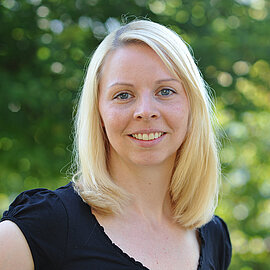Russia, a former net importer of wheat, has developed into one of the leading actors in the world wheat market within the last decade. Forecasts suggest that Russia might become the world’s largest wheat exporter by 2020. This is why the importance of Russia and the pertaining issue of its exercising market power and price discrimination in the international wheat market are increasingly in the focus of economics, politics and science.
Wheat prices, like world market prices of other agricultural produce, have continually risen since the turn of the millennium. Higher agricultural prices may jeopardise political and social stability and bring about an increase in poverty, malnutrition and hunger. On the other hand, higher prices open investment incentive and income-generation opportunities in rural areas which could counteract the world food problem in the mid- and long-term.
Considerable importance for worldwide grain production and international trade is in particular attributed to grain exporters in the East, provided their further mobilisation of as yet untapped agricultural market potentials. Since the turn of the millennium, Russia managed to increase its share in world wheat market from 0.5 per cent to approximately 15 per cent. Russia is currently deemed to be the fourth-largest wheat exporter in the world and it can be expected that Russia will further extend its share in the world market.
In recent years, Russia annually exported between 11 and 17 million MT wheat to almost 60 different countries. Key buyers of Russian wheat are located in the Caucasus (Armenia and Georgia) as well as in the Near East and Northern Africa (Egypt, Turkey, Iraq, Yemen, Israel, Libya, Iran and Syria). This development raises the question whether Russia will use its newly-gained market position to exercise market power or price discrimination. This issue is of particular relevance for importing countries in Central Asia and the Caucasus region where Russia, due to its geographic location, is facing only a few competitors.
IAMO Director Thomas Glauben and researchers Zsombar Pàll, Oleksandr Perekhozhuk, Soeren Prehn and Ramona Teuber found in their analyses market power is exercised by Russian grain exporters in various importing regions in Central Asia and Northern Africa. Exporters in international wheat trade are apparently able to strategically discriminate prices and generating extra rents in those regions. However, it also became evident that no market power exertionor price discrimination by Russian exporters was found in the majority of destinations.
For the detailed findings of the study, please, go to IAMO Policy Brief 6 on the homepage: http://www.iamo.de/fileadmin/documents/IAMOPolicyBrief6_en.pdf.
The publication series IAMO Policy Brief is published at irregular intervals and provides a platform for research findings and outcomes of the Institute of Agricultural Development in Central and Eastern Europe (IAMO) with social relevance to be communicated accessibly and entertainingly to a broad audience. Key target groups include political decision-makers, mass media representative and the general public.
Text: 3,299 characters (with spaces)
